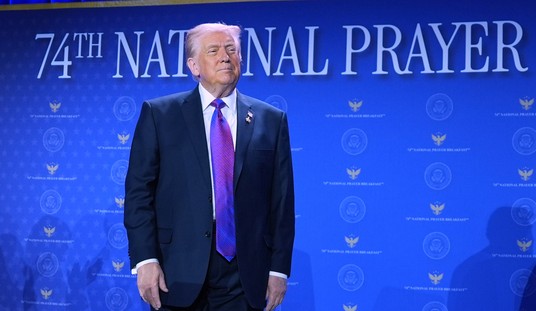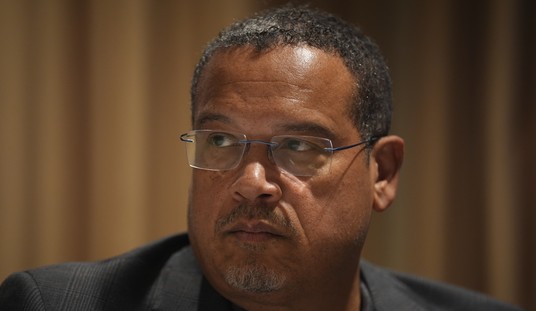“The president who won the Nobel Peace Prize less than nine months after his inauguration has turned out to be one of the most militarily aggressive American leaders in decades…
“Mr. Obama’s readiness to use force — and his military record — have won him little support from the right. Despite countervailing evidence, most conservatives view the president as some kind of peacenik. From both the right and left, there has been a continuing, dramatic cognitive disconnect between Mr. Obama’s record and the public perception of his leadership: despite his demonstrated willingness to use force, neither side regards him as the warrior president he is…
“[I]t is clear that he has completely shaken the ‘Vietnam syndrome’ that provided a lens through which a generation of Democratic leaders viewed military action. Still, the American public and chattering classes continue to regard the president as a thinker, not an actor; a negotiator, not a fighter.”
“White House counterterrorism adviser John Brennan appeared on three separate Sunday morning programs to discuss the administration’s efforts against al Qaeda a year after President Barack Obama ordered the raid that killed Osama bin Laden.
“‘We’re on the path towards al Qaeda’s destruction, and the president has committed that we’re not going to rest until al Qaeda is destroyed as an organization,” Brennan told CNN’s “State of the Union with Candy Crowley.’ ‘We’re not going to relent until they’re brought to justice one way or the other. We demonstrated the ability to do that with bin Laden.'”
“‘There are indicators that some elements of the Pakistani government may be protecting Zawahiri,’ says a U.S. intel official who did not want to be named discussing sensitive information. ‘We have reports that he’s been hanging out in Karachi for brief periods, and we just don’t think he’s going to be doing that without a lot of people knowing about it.’…
“If the U.S. gets Zawahiri in its sights, it won’t want to risk compromising an operation to take him out. The al Qaeda leader’s safest bet might be to hide as deep inside Pakistani territory as he can get. Riedel believes he’s probably already there. ‘I think the CIA would be looking for something that looks an awful lot like Abbottabad,’ he says. ‘A safe house in an urban area near a military base. That’s been the signature of almost all of the senior Qaeda operatives who have been killed or captured.’
“‘The problem for Zawahiri, however, is that “the CIA has demonstrated that it can break the code,’ says Riedel. ‘Bin Laden actually practiced pretty good operational security, but Zawahiri has to take it up a notch. If I were him, I would be worried. I think we’ll find him, and I don’t think it will take 10 years.'”
“Bergen offers this perspective: ‘Seventeen Americans have been killed by Al Qaeda or people influenced by its ideas since 9/11. More Americans die in their bathtubs by significant amounts, by accidental drowning. We don’t have a fear of accidental bathtub drowning.’…
“Ignatius, who has read some of the documents the U.S. obtained from bin Laden’s compound, said the terror group’s leader knew some aspects of his organization failed…
“However, the Washington Post journalist said the ideas of al Qaeda are stronger than the organization. ‘Bin Laden’s violent dreams of jihad probably died with him, but the idea of purifying the Muslim world of Western influence, of getting what he called apostate leaders like Hosni Mubarak in Egypt out of their jobs, that’s actually happened,’ Ignatius said.”
“Documents found in the house where Osama bin Laden was killed a year ago show a close working relationship between top al-Qaida leaders and Mullah Omar, the overall commander of the Taliban, including frequent discussions of joint operations against Nato forces in Afghanistan, the Afghan government and targets in Pakistan…
“The news will undermine hopes of a negotiated peace in Afghanistan, where the key debate among analysts and policymakers is whether the Taliban – seen by many as following an Afghan nationalist agenda – might once again offer a safe haven to al-Qaida or like-minded militants, or whether they can be persuaded to renounce terrorism…
“‘Questions and issues come up. They don’t see eye to eye on everything but it’s clear they understand they have an interest in co-operating [on attacks against Nato, Afghan government and Pakistani targets],’ the source said. ‘Of those engaged in the conversation, two [Zawahiri and Omar] are still alive today and there is no reason to believe that either has substantially changed his views in the last year.'”
“‘It’s wishful thinking to say al-Qaida is on the brink of defeat,’ says Seth Jones, a Rand analyst and adviser to U.S. special operations forces. ‘They have increased global presence, the number of attacks by affiliates has risen, and in some places like Yemen, they’ve expanded control of territory.’…
“Many U.S. officials cite the Yemen model as the way ahead: a small network of U.S. intelligence and military forces working with local forces to selectively target militants.
“‘The key challenge will be balancing aggressive counterterrorism operations with the risk of exacerbating the anti-Western global agenda’ of al-Qaida and its affiliates, Cardillo says.
“In other words, adds Jones, ‘it is a war in which the side that kills the most civilians loses.'”
“What we’re seeing now in Egypt is something that might be called electoral bin Ladenism. Take the group Gamaa Islamiya, which under its spiritual leader, Sheikh Omar Abdel Rahman, made the first unsuccessful attempt to destroy the World Trade Center in 1993. Today, the organization has formed a Salafist political party with the benign name Building and Development Party. This organization, which like al-Qaeda traces its roots to the Islamist theorist Sayyid Qutb, has 13 seats in the new Egyptian parliament…
“So, a year on, it’s a time to think about bin Laden’s failures but also about the ways his fellow Islamists have morphed toward a political movement more successful than even bin Laden could have dreamed.”
“Gibbs was asked by host David Gregory if the president believed that Romney would not have authorized the bin Laden mission had he access to the same intelligence.
“‘I don’t think it’s clear that he would,’ said Gibbs of Romney. ‘Again, he criticized Barack Obama a few years ago, when Barack Obama said if we had actionable intelligence about a high value target and let’s be clear: Nobody was bigger, nobody was a more high value target than Osama bin Laden.'”
Visit msnbc.com for breaking news, world news, and news about the economy
“Gillespie, a former Republican National Committee chairman, responded: ‘This is one of the reasons President Obama has become one of the most divisive presidents in American history. He took something that was a unifying event for all Americans – an event that Gov. Romney congratulated him and the military and the intelligence analysts in our government for completing the mission in terms of killing Osama bin Laden – and he’s managed to turn it into a divisive partisan political attack.'”
Visit msnbc.com for breaking news, world news, and news about the economy
Visit msnbc.com for breaking news, world news, and news about the economy








Join the conversation as a VIP Member